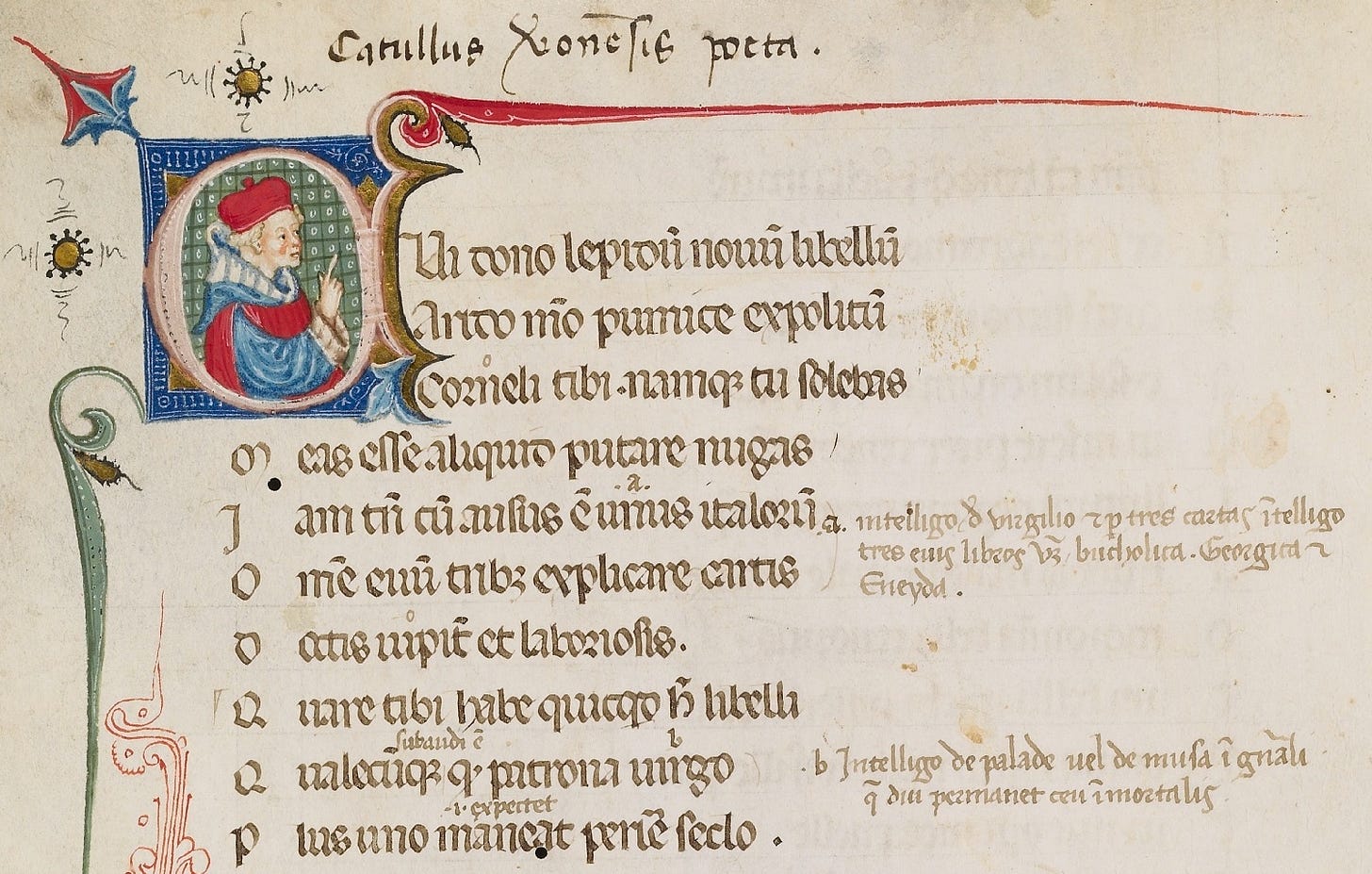Rhythms of Ancient Poetry (5)
Hendecasyllables
This lively 11-syllable line (hendeka is Greek for 11) is associated with the short, witty, and often scurrilous poems of the Roman poet Catullus (mid 1st century BC). If you care for scurrility, see my post on Catullus 32:
The hendecasyllabic line starts off with a few mainly long syllables before scampering to a close with an alternation of long and short. Read this to get a sense of it in English:
Who pens hendecasyllables in anger, Framing metre to represent emotions? Who’d not savour Catullus’ earthy clangour, All those furious, intimate devotions Tracing Love’s ever complicated arrow, Dreams of Lesbia, jokes about a sparrow? Rank abuse, often impudently clever, Trifles, sure – but a book that lives for ever.
To our ear it most easily falls into three units:
1 - long long 2 - long-short-short 3 - long-short, long-short, long-short
or
1 - dum dum 2 - dum-di-di 3 - dum-di, dum-di, dum-di
A small variation allows unit 1 to start, occasionally, long-short (dum-di) or short-long (di-dum). So in line 6 above, 'Rank abuse...' begins long-short.
Catullus prefaced his book of short poems (numbered 1-60, predominantly composed in hendecasyllables) with no. 1 in hendecasyllables, in which he dedicates his ‘trifles’ to his friend, the historian Cornelius Nepos. I've used iambics to translate it because they fall more easily in English:
Whom shall I gift this smart new little book, just polished smooth with crispy pumice-stone? Cornelius, to you, since you are prone to think my trifles worth a second look – yes, even though, alone in Italy, you’ve ventured on a history of the world and set it forth in three papyrus scrolls, a learned and, by Jove, exacting task. So take, for what it’s worth, this book as your slight recompense. And goddess Muse, I ask: may it survive a century or more.
Cui dono lepidum novum libellum arido modo pumice expolitum? Corneli, tibi; namque tu solebas meas esse aliquid putare nugas, iam tum cum ausus es unus Italorum omne aevum tribus explicare chartis, doctis, Iuppiter, et laboriosis! quare habe tibi quidquid hoc libelli qualecumque, quod, o patrona virgo, plus uno maneat perenne saeclo.




I took 2 yrs of Latin in school in Texas in the 70s, and this is pretty stupendous. A world opens up! Always told Catullus was too lewd for teenagers but I had no clue how clever he was
Beautiful poems. Struggle with the Latin one. Only because I am not familiar with the language. The dum-di part of your explanation made me think of Roy Orbinson and Only the Lonely. Definitely not a hendecasyllable.